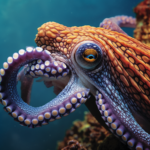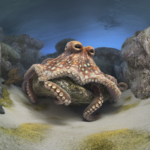Octopuses are fascinating creatures that have captured the attention of scientists and nature enthusiasts alike. These intelligent and highly adaptable animals possess remarkable problem-solving abilities, which have been the subject of extensive research. From opening jars to escaping enclosures, octopuses have demonstrated their remarkable cognitive skills and problem-solving prowess. In this article, we will explore the fascinating world of octopus problem solving, delving into the various techniques and strategies these cephalopods employ to overcome challenges. So, let’s dive in and uncover the secrets of octopus problem solving.
Key Takeaways
- Octopuses are highly intelligent creatures known for their problem-solving abilities.
- Octopuses have a unique ability to adapt and learn from their environment.
- Octopuses use their problem-solving skills to escape from enclosures and find food.
- Octopuses have been observed using tools and manipulating objects to solve problems.
- Studying octopus problem-solving abilities can provide insights into intelligence and cognition in animals.
The Fascinating World of Octopus Problem Solving
A. Understanding the Octopus Brain
Octopuses are truly remarkable creatures, known for their incredible problem-solving abilities and high level of intelligence. To truly appreciate their problem-solving skills, it is important to understand the complexity of the octopus brain.
The octopus brain is quite different from that of other animals. While humans have a centralized brain, the octopus has a decentralized nervous system. Two-thirds of their neurons are found in their arms, allowing them to process information independently. This decentralized structure enables octopuses to multitask and solve problems in a unique and efficient manner.
Furthermore, the octopus brain exhibits an impressive level of plasticity, which means it can adapt and change its neural connections based on its experiences. This adaptability allows octopuses to learn from their surroundings and adjust their problem-solving strategies accordingly.
B. The Science Behind Octopus Intelligence
Octopus intelligence has fascinated scientists for decades. Researchers have conducted numerous studies to unravel the secrets behind their problem-solving abilities. These studies have shed light on the science behind octopus intelligence and provided insights into their remarkable cognitive abilities.
One area of study focuses on octopus learning ability. Through experiments, scientists have discovered that octopuses can learn by observation. They have observed octopuses watching other octopuses solve puzzles and then successfully solving the same puzzles themselves. This observational learning showcases their ability to acquire new skills and adapt their problem-solving techniques.
Another fascinating aspect of octopus intelligence is their memory. Despite having a relatively short lifespan, octopuses possess an impressive memory. They can remember complex mazes, recognize individuals, and recall past experiences. This memory retention allows them to apply previously learned strategies to solve new problems efficiently.
Octopuses also exhibit exceptional manipulative skills. They can use tools to solve puzzles, such as unscrewing jars or manipulating objects to reach their desired outcome. This tool use demonstrates their ability to think critically and apply their knowledge in practical ways.
Furthermore, octopuses are masters of disguise. They possess remarkable camouflage tactics, allowing them to blend seamlessly into their surroundings. This ability not only helps them evade predators but also aids in problem-solving. By blending in, octopuses can observe their environment and strategize accordingly.
In conclusion, the world of octopus problem-solving is a fascinating one. Their unique brain structure, adaptability, observational learning, memory retention, manipulative skills, and camouflage tactics all contribute to their remarkable problem-solving abilities. By studying and understanding these incredible creatures, scientists continue to gain valuable insights into the depths of underwater intelligence.
Unraveling the Octopus Problem Solving Skills
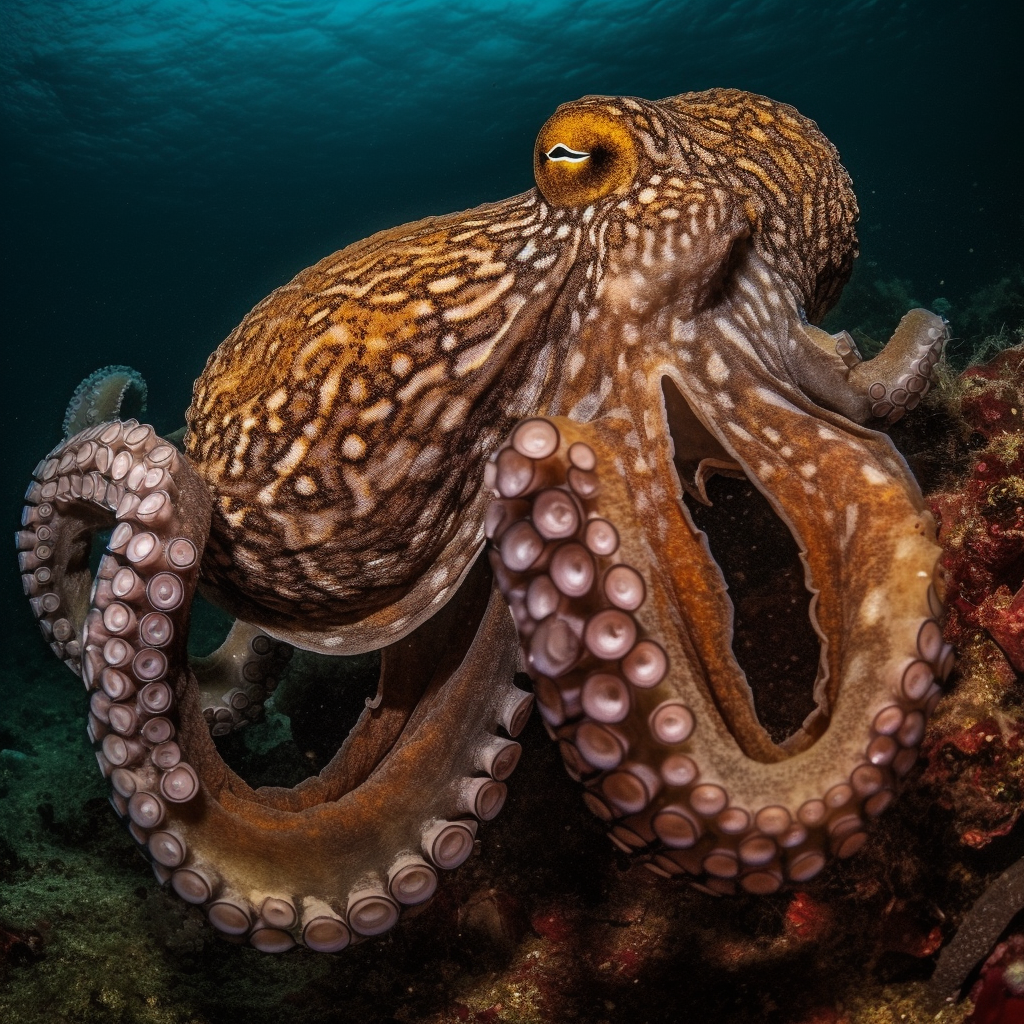
A. The Octopus and Puzzles: A Unique Relationship
When it comes to problem-solving abilities in the animal kingdom, the octopus stands out as a remarkable creature. With their intelligence, cephalopod cognition, and octopus behavior, these marine animals have captivated scientists and researchers for years. One particular aspect of their cognitive abilities that has fascinated experts is their problem-solving skills, especially when it comes to puzzles.
Octopuses have been observed to engage in various puzzle-solving tasks, showcasing their incredible ability to think outside the box. These tasks often involve manipulating objects, using tools, and even escaping from confined spaces. Octopuses have been known to open jars, unscrew lids, and navigate through complex mazes, all in the pursuit of a reward or to solve a problem.
B. The Role of Tentacles in Problem Solving
One of the key factors that contribute to an octopus’s problem-solving prowess is its tentacles. These appendages, which are lined with suckers, are incredibly versatile and dexterous. Each tentacle contains hundreds of suckers, allowing the octopus to manipulate objects with precision and finesse.
The tentacles not only serve as a means of grasping and manipulating objects but also play a crucial role in the octopus’s sensory perception. The suckers on the tentacles are equipped with chemoreceptors, which enable the octopus to taste and smell its surroundings. This heightened sense of touch and taste allows the octopus to gather information about its environment, aiding in problem-solving tasks.
C. Octopus Adaptability: A Key to Problem Solving
Another remarkable aspect of octopus problem-solving is their adaptability. Octopuses are known for their ability to adapt to different situations and environments. This adaptability is crucial when it comes to problem-solving, as it allows the octopus to come up with innovative solutions to overcome challenges.
Octopuses have been observed using their problem-solving skills in various contexts, such as escaping from predators, finding food, and navigating complex underwater terrain. Their ability to quickly learn and adapt to new situations is a testament to their cognitive abilities and problem-solving skills.
Furthermore, octopuses have been observed to exhibit observational learning, where they learn from watching and imitating other octopuses. This ability to learn from their peers and adapt their problem-solving strategies accordingly showcases their social intelligence and cognitive flexibility.
In conclusion, octopuses are truly remarkable creatures when it comes to problem-solving. Their intelligence, adaptability, and unique physical attributes, such as their tentacles, contribute to their exceptional problem-solving skills. By unraveling the mysteries of octopus problem-solving, scientists and researchers gain valuable insights into the cognitive abilities of these fascinating marine animals.
When the Octopus is Not Working: Understanding the Downtime
A. The Importance of Rest in Octopus Problem Solving
Octopuses are fascinating creatures known for their intelligence, adaptability, and problem-solving abilities. However, just like any other living being, they also need their fair share of rest. Rest is crucial for an octopus’s overall well-being and plays a significant role in their problem-solving capabilities.
Rest allows the octopus’s brain to recharge and process information more efficiently. When an octopus is well-rested, it can approach problem-solving tasks with a clear and focused mind. This is because sleep helps consolidate memories and enhances learning, which are essential for an octopus to solve complex puzzles and escape from challenging situations.
Similar to humans, octopuses go through different sleep stages. They experience both rapid eye movement (REM) sleep and non-REM sleep. During REM sleep, the octopus may exhibit twitching or color changes, indicating that their brain is actively processing information. Non-REM sleep, on the other hand, is a deeper sleep state where the octopus is less responsive to external stimuli.
It’s important to note that octopuses have different sleep patterns compared to humans. While humans typically have a consolidated period of sleep, octopuses have been observed to take short naps throughout the day. These naps are interspersed with periods of wakefulness, allowing them to rest and recharge without compromising their ability to respond to their environment.
B. The Impact of Stress on Octopus Problem Solving
Stress can have a significant impact on an octopus’s problem-solving abilities. Just like humans, octopuses experience stress in various situations, such as being in captivity or encountering predators. When an octopus is stressed, it can affect their cognitive abilities and hinder their problem-solving skills.
When an octopus is under stress, it releases stress hormones that can interfere with their ability to think clearly and make decisions. These hormones can impair their memory and learning abilities, making it more challenging for them to solve puzzles or escape from difficult situations. Additionally, stress can lead to a decrease in exploratory behavior and a heightened state of vigilance, which can further hinder their problem-solving capabilities.
To ensure optimal problem-solving abilities, it’s crucial to create an environment that minimizes stress for octopuses. This includes providing them with appropriate living conditions, such as ample space, hiding spots, and stimulating enrichment activities. By reducing stress levels, octopuses can focus their cognitive resources on problem-solving tasks, leading to better outcomes.
In conclusion, rest and stress management play vital roles in an octopus’s problem-solving abilities. By understanding the importance of rest and minimizing stress, we can create an environment that supports octopuses in utilizing their remarkable intelligence and problem-solving skills to the fullest.
Can Octopus Solve Problems: A Deep Dive
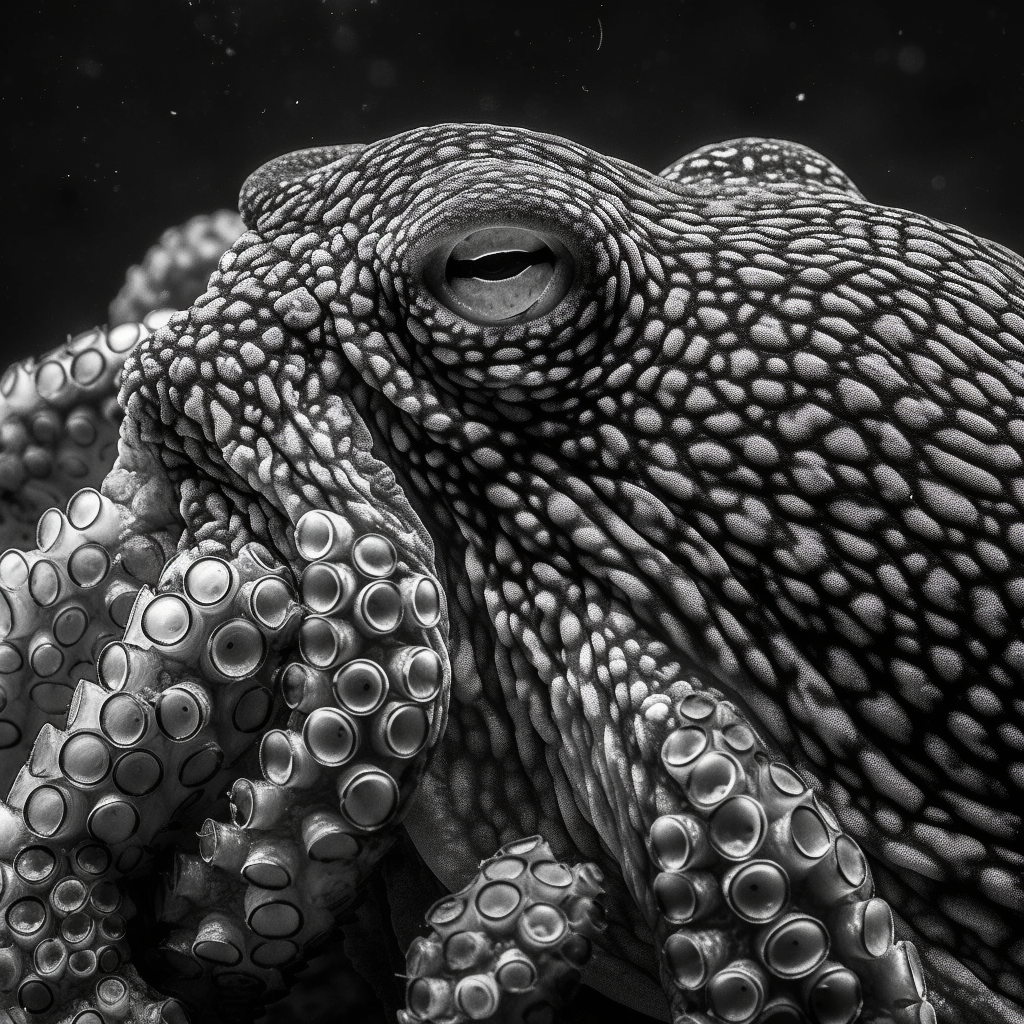
A. Documented Instances of Octopus Problem Solving
Octopuses are fascinating creatures known for their intelligence and problem-solving abilities. Over the years, researchers have documented numerous instances of octopuses displaying remarkable problem-solving skills. These instances provide valuable insights into the cognitive abilities of these marine creatures.
One well-known example of octopus problem solving involves their ability to escape from enclosures. Octopuses have been observed using their flexible bodies and strong arms to manipulate objects and find their way out of tanks and aquariums. In some cases, they have even been known to unscrew jar lids or squeeze through tiny openings to reach freedom.
Another area where octopuses have showcased their problem-solving prowess is in puzzle-solving. Researchers have conducted experiments where they present octopuses with puzzles or challenges that require them to use their cognitive abilities to find a solution. These puzzles often involve manipulating objects, such as opening a container to access a reward. Octopuses have demonstrated an impressive ability to solve these puzzles, showcasing their adaptability and learning abilities.
B. The Role of Environmental Factors in Problem Solving
While octopuses have shown remarkable problem-solving abilities, it is important to consider the role of environmental factors in shaping their cognitive skills. Octopuses inhabit diverse marine environments, and their ability to adapt and interact with their surroundings plays a significant role in their problem-solving capabilities.
One key environmental factor that influences octopus problem solving is their natural habitat. Octopuses are highly adaptable creatures, capable of camouflaging themselves to blend seamlessly with their surroundings. This ability to change color and texture allows them to hide from predators and ambush prey. It also enables them to approach problems from different angles, using their camouflage tactics to their advantage.
Another environmental factor that impacts octopus problem solving is their interaction with other species. Octopuses are known to observe and learn from their surroundings, including interactions with other marine life. By observing the behavior of other creatures, octopuses can gain insights and adapt their problem-solving strategies accordingly.
Furthermore, the complex structure of an octopus’s brain contributes to its problem-solving abilities. Octopuses have a highly developed nervous system, with a large portion of their neurons located in their arms. This distributed neural network allows them to process information and make decisions quickly. It also enables them to manipulate objects with precision and dexterity, aiding in their problem-solving endeavors.
In conclusion, octopuses have proven themselves to be adept problem solvers. Their documented instances of problem solving, combined with their adaptability, learning abilities, and unique brain structure, highlight their remarkable cognitive skills. By understanding the role of environmental factors in shaping their problem-solving abilities, we can gain a deeper appreciation for the intelligence and ingenuity of these fascinating creatures.
How Do Octopus Solve Problems: The Process Explained
A. The Use of Trial and Error in Octopus Problem Solving
Octopuses are fascinating creatures known for their intelligence and problem-solving abilities. When faced with a challenge, they employ a variety of strategies to find a solution. One of the key methods they use is trial and error.
When an octopus encounters a problem, it begins by exploring different approaches. It may try various actions or manipulate objects in its environment to see what works. Through this process of trial and error, the octopus gains valuable information about the problem at hand.
For example, if an octopus is presented with a puzzle that requires opening a container to access food, it may initially attempt different techniques such as pulling, pushing, or squeezing the container. By observing the outcomes of these actions, the octopus learns which methods are effective and which are not. Over time, it refines its approach based on the feedback received.
B. The Role of Memory in Octopus Problem Solving
Memory plays a crucial role in the problem-solving abilities of octopuses. These intelligent creatures possess an impressive capacity for learning and retaining information. They can remember past experiences and apply that knowledge to future situations.
Octopuses have been observed to exhibit both short-term and long-term memory. Short-term memory allows them to recall recent events and actions, while long-term memory enables them to retain information over extended periods.
This ability to remember and learn from past experiences enhances an octopus’s problem-solving skills. It allows them to build upon previous successes and avoid repeating unsuccessful strategies. For instance, if an octopus encounters a particular type of puzzle multiple times, it can recall the methods that worked in the past and apply them to similar challenges in the future.
Furthermore, octopuses have been shown to exhibit observational learning, where they can learn by watching and imitating the behavior of other octopuses. This form of social learning enables them to acquire new problem-solving techniques and adapt to novel situations more efficiently.
In conclusion, octopuses employ trial and error as well as memory to solve problems. Through their remarkable cognitive abilities and adaptability, these intelligent creatures continue to captivate researchers and provide valuable insights into the world of animal intelligence.
The Application of Octopus Problem Solving to Android Systems
A. The Concept of Octopus Problem Solving in Technology
When it comes to problem-solving, humans have often looked to nature for inspiration. One fascinating creature that has captured the attention of scientists and researchers is the octopus. These intelligent creatures possess remarkable problem-solving abilities that have piqued the interest of experts in various fields, including technology.
Octopus intelligence is a marvel to behold. These cephalopods exhibit complex cognitive abilities and behavior that allow them to navigate their environment with ease. From puzzle-solving to escape artistry, octopuses have demonstrated their remarkable problem-solving skills time and time again. But how can we apply these skills to the world of technology, specifically in Android systems?
To understand the potential for bio-inspired problem solving in Android systems, we must first delve into the intricacies of octopus problem-solving abilities. Octopuses are known for their tool use, underwater intelligence, and adaptability. They possess incredible manipulation skills and can learn through observation. Their memory is impressive, allowing them to recall past experiences and apply that knowledge to future situations.
B. The Potential for Bio-Inspired Problem Solving in Android Systems
The octopus‘s problem-solving abilities offer a wealth of inspiration for the development of Android systems. By studying their behavior and cognitive abilities, researchers can gain valuable insights into creating more efficient and adaptable technology.
One area where octopus problem-solving can be applied to Android systems is in the realm of environmental interaction. Octopuses are masters of camouflage tactics, seamlessly blending into their surroundings to avoid predators or capture prey. This ability to adapt and interact with their environment can be incorporated into Android systems, allowing them to seamlessly integrate into various contexts and respond accordingly.
Another aspect of octopus problem-solving that can be harnessed for Android systems is their learning ability. Octopuses are capable of observational learning, meaning they can acquire new skills by watching and imitating others. This form of learning can be integrated into Android systems, enabling them to learn from user behavior and adapt their functionalities accordingly.
Furthermore, the octopus’s impressive memory and brain structure can inspire the development of more efficient and intelligent Android systems. By mimicking the octopus’s ability to recall past experiences, Android systems can enhance their decision-making processes and provide personalized experiences for users.
In conclusion, the concept of octopus problem-solving holds immense potential for the advancement of Android systems. By drawing inspiration from the intelligence, adaptability, and observational learning abilities of octopuses, researchers can create more efficient and adaptable technology. The application of bio-inspired problem-solving in Android systems has the potential to revolutionize the way we interact with technology, providing us with more personalized and seamless experiences.
Octopus Solving Problems: A Case Study
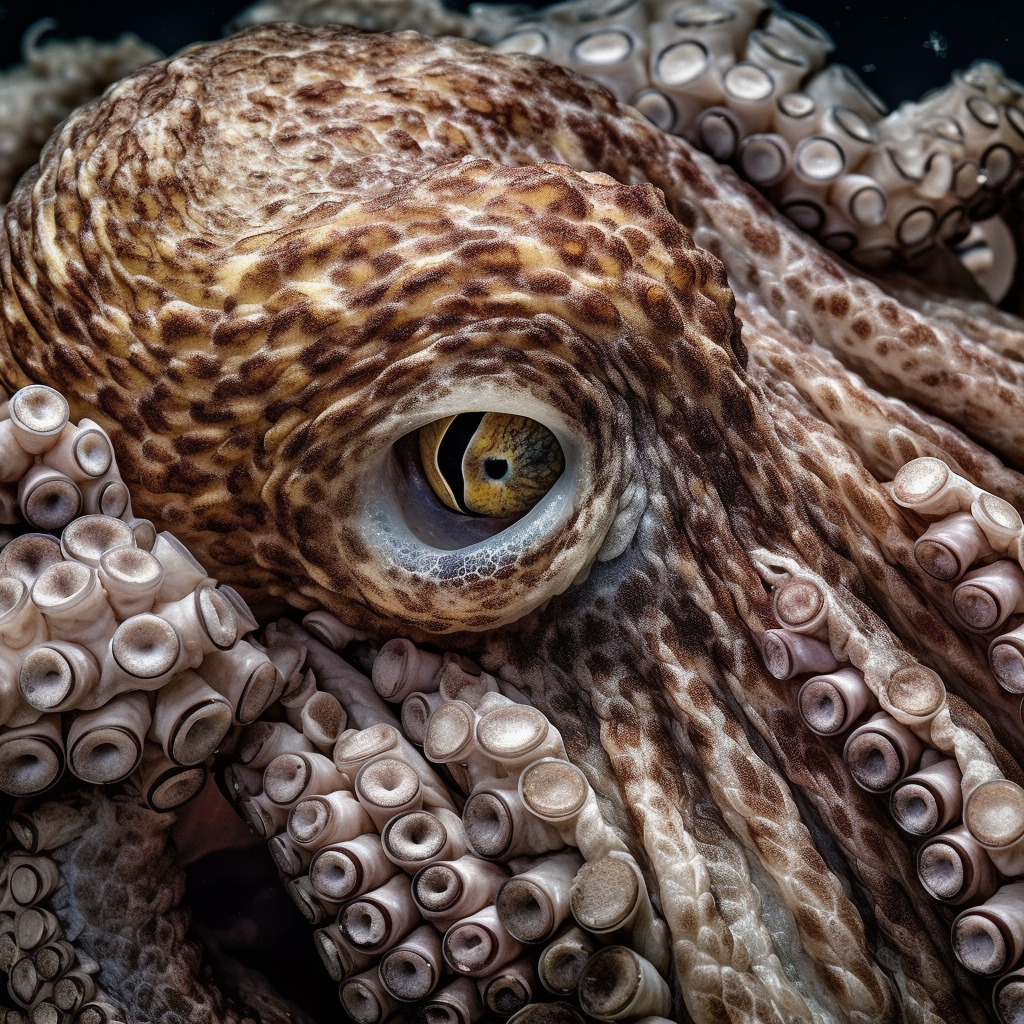
A. The Octopus and the Jar: A Classic Problem Solving Example
Octopuses are fascinating creatures known for their incredible problem-solving abilities. One classic example that showcases their intelligence and adaptability is the octopus and the jar experiment. In this experiment, researchers place a jar with a tasty treat inside it into the octopus’s tank, challenging the octopus to figure out how to access the reward.
The octopus, armed with its highly dexterous tentacles and keen observational skills, approaches the jar with curiosity. It carefully examines the jar, using its suckers to explore the surface and identify any potential openings. Through a combination of trial and error, the octopus discovers that it can unscrew the jar lid by twisting it with its tentacles.
This problem-solving behavior demonstrates the octopus’s ability to analyze its environment, identify obstacles, and devise creative solutions. It showcases their cognitive abilities and highlights their capacity for learning through observation and experimentation.
Octopus Intelligence and Cognitive Abilities
The octopus‘s problem-solving prowess is a testament to its intelligence and cognitive abilities. Octopuses have a highly developed nervous system, with a complex brain structure that allows for advanced problem-solving and learning. Their large brains contain specialized lobes responsible for memory, sensory processing, and decision-making.
B. The Octopus and the Maze: A Test of Memory and Problem Solving
Another fascinating experiment that showcases the octopus’s problem-solving skills is the octopus and the maze test. In this experiment, researchers construct a maze with various pathways and hiding spots, challenging the octopus to navigate through it to find a reward.
The octopus enters the maze, using its keen memory and problem-solving abilities to remember the path it has taken and avoid dead ends. It relies on its observational learning skills to identify patterns and make informed decisions about which direction to take. Through persistence and adaptability, the octopus successfully navigates the maze and reaches the reward.
Octopus Memory and Learning Ability
The octopus‘s ability to navigate complex mazes highlights its exceptional memory and learning ability. Octopuses have been shown to possess both short-term and long-term memory, allowing them to recall information and adapt their behavior accordingly. This memory retention enables them to solve problems and overcome challenges, even in unfamiliar environments.
Octopus Adaptability and Environmental Interaction
Octopuses are highly adaptable creatures that can quickly adjust their behavior to suit their surroundings. Their problem-solving abilities are closely linked to their ability to interact with their environment. Octopuses can use their surroundings to their advantage, whether it be manipulating objects, using tools, or employing camouflage tactics to hide from predators or prey.
In conclusion, the octopus’s problem-solving abilities are a testament to their intelligence, adaptability, and cognitive prowess. Through experiments like the jar and maze tests, researchers have gained valuable insights into the octopus’s learning abilities, memory retention, and observational skills. These studies contribute to our understanding of the fascinating world of octopus behavior and their remarkable problem-solving capabilities. Conclusion
In conclusion, octopuses are truly remarkable creatures when it comes to problem-solving abilities. Their flexible bodies, complex nervous systems, and highly developed cognitive skills enable them to navigate various challenges in their environment. Through their ability to use tools, camouflage, and mimicry, octopuses demonstrate their adaptability and resourcefulness. Their problem-solving skills have been observed in various experiments, where they have shown the ability to solve puzzles, open jars, and even escape from enclosures. Octopuses are a testament to the incredible diversity and ingenuity of nature, and studying their problem-solving abilities can provide valuable insights into the evolution of intelligence. As we continue to explore and understand the fascinating world of octopuses, we can gain a deeper appreciation for the complexity and wonder of the natural world.
Frequently Asked Questions
1. What is meant by ‘octopus problem solving’?
‘Octopus problem solving‘ refers to the ability of octopuses to use their cognitive abilities to overcome challenges or obstacles. This can include tasks like opening jars to get food, escaping from enclosures, or using tools. It’s a key part of cephalopod cognition and is a testament to the octopus’s intelligence.
2. How good are octopus problem solving skills?
Octopuses are known for their exceptional problem-solving skills. They can solve complex puzzles, escape from enclosures, and even use tools, demonstrating a level of intelligence that is quite remarkable for marine life. Their problem-solving skills are a result of their unique brain structure, observational learning, and adaptability.
3. What does ‘octopus not working’ mean?
‘Octopus not working’ could refer to a few different scenarios. In a technological context, it could mean that an application named ‘Octopus’ is malfunctioning. In a biological context, it could mean that an octopus is not exhibiting its usual behavior or problem-solving abilities, possibly due to illness or environmental factors.
4. Can octopuses solve puzzles?
Yes, octopuses can solve puzzles. They have been observed in research and experiments to manipulate their environment and use tools to solve complex problems. This is a testament to their cognitive abilities and is a part of their unique octopus puzzle-solving skills.
5. Can octopuses solve problems?
Yes, octopuses are known for their problem-solving abilities. They can manipulate their environment, use tools, and even escape from enclosures. These abilities are a testament to their intelligence and adaptability, and they demonstrate the remarkable cognitive abilities of this species.
6. How to use Octopus on Android?
‘Octopus’ is a powerful keymapping and peripheral devices connecting tool for mobile gaming on Android. To use it, you need to download it from the Google Play Store, open the app, and follow the instructions to map your game controls. Please note that this is unrelated to the marine creature.
7. How do octopuses solve problems?
Octopuses solve problems by using their cognitive abilities, including their memory, observational learning, and manipulation skills. They can use tools, manipulate their environment, and even escape from enclosures. This is a testament to their intelligence and adaptability.
8. What is octopus solving problems?
‘Octopus solving problems‘ refers to the ability of octopuses to use their cognitive abilities to overcome challenges or obstacles. This can include tasks like opening jars to get food, escaping from enclosures, or using tools. It’s a key part of cephalopod cognition and is a testament to the octopus’s intelligence.
9. What is octopus intelligence?
Octopus intelligence refers to the cognitive abilities of octopuses, including their problem-solving skills, memory, observational learning, and manipulation skills. Octopuses have a unique brain structure that enables these abilities, and they are known for their adaptability and ability to interact with their environment in complex ways.
10. What is known about octopus behavior?
Octopus behavior is complex and fascinating. They are known for their problem-solving skills, ability to use tools, escape artistry, and unique methods of interaction with their environment. Octopuses also have impressive camouflage tactics, allowing them to blend in with their surroundings to evade predators or sneak up on prey. Their behavior is a testament to their intelligence and adaptability.


